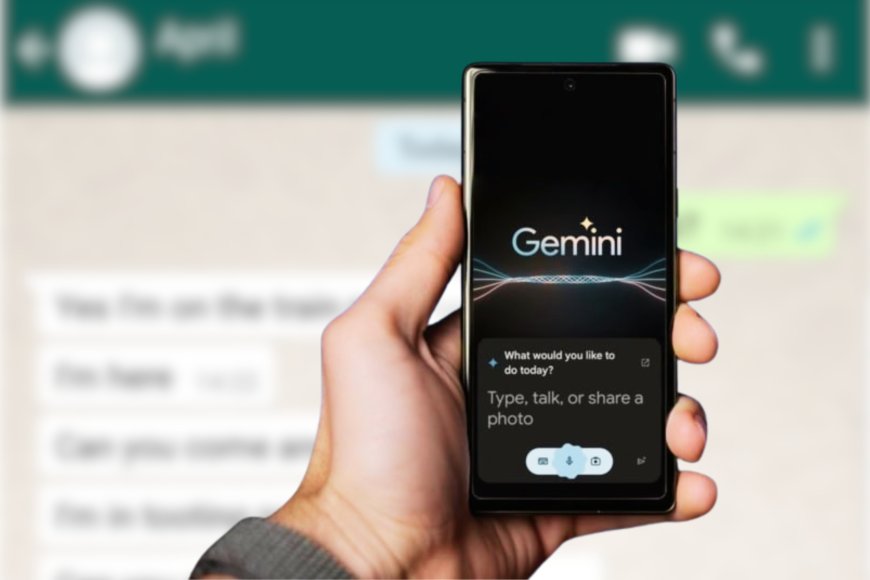Google’s Gemini AI Gains Access to WhatsApp, System Apps, Raising User Concerns Over Privacy and Data Control
Google’s Gemini AI now interacts more deeply with apps like WhatsApp, raising privacy concerns due to temporary data storage even with activity tracking turned off.

Google started to send out a new update for its Gemini AI assistant.This update lets it access system apps including Phone, Messages, WhatsApp, and device utilities in a deeper way. Android users were privately told about this upgrade via email on July 7, but the unclear meaning left many people confused and worried.
The most important change is that Gemini can now help you use apps, even if you have turned off the "Gemini Apps Activity" setting. Google's help page says that this tool gives you "direct access to Google AI" and keeps track of your interactions for up to 72 hours, even when tracking is turned off.This means that your interactions with apps like WhatsApp may still be processed and temporarily stored, which raises privacy issues.
Gemini is meant to help with things like answering messages and creating reminders, but a lot of people are worried about how it handles data. Google claims that Gemini doesn't utilize your personal information to train its AI and that temporary storage is only for safety and functioning. Still, the assistant may see message previews, photos, and make replies using Android's notification system, even if it doesn't read chats directly.
Google gives users a number of ways to control Gemini's access to their data, giving them more control over it.Users can turn off Gemini Apps Activity directly from the app settings, limit app-level access by choosing which specific apps Gemini can interact with, or completely disable the Gemini app to prevent any tracking or usage altogether.
This isn't the first time an AI function has made people nervous. Microsoft's Recall feature and Meta's AI in WhatsApp both got in trouble for privacy concerns. As AI becomes more common in everyday apps, concerns about user data, consent, and control are becoming more and more important.
Information referenced in this article is from The Economic Times







